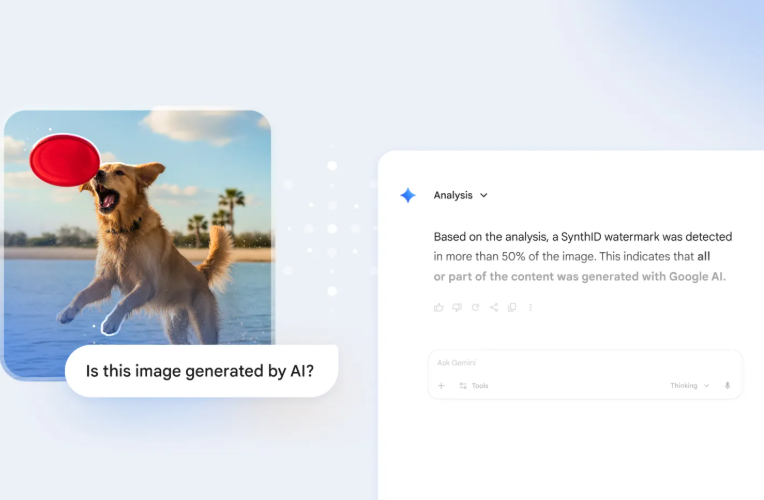Google recently announced that Gemini users can now more easily identify AI-generated image content. Users can simply ask the Gemini app "Is this image AI-generated?" to quickly determine whether the image was created or edited by Google's AI tools. This feature is currently focused on image content, but Google plans to expand it to video and audio verification in the near future, and it may even be integrated into other services like Google Search.

Notably, Google's current image verification feature relies on its proprietary SynthID invisible AI watermarking technology. In the future, Google will also support the industry-wide C2PA content credential standard, which is expected to help users identify the sources of content generated by various AI tools and creative software, such as OpenAI's Sora.
Additionally, Google revealed that images generated by its latest released Nano Banana Pro model will include C2PA metadata. The release of this new technology marks a further improvement in the transparency of AI-generated content. Previously, TikTok also confirmed that it will adopt C2PA metadata as part of the invisible watermark for AI-generated content.
Although the Gemini app provides a manual verification function, this step is crucial for users. However, to truly leverage the effectiveness of C2PA credentials and SynthID watermarking technologies, social media platforms need to improve their ability to automatically flag AI-generated content, rather than relying entirely on user judgment. These series of initiatives demonstrate Google's efforts to enhance the transparency of AI-generated content.
Key Points:
🌟 New feature in Google Gemini allows users to easily ask if an image is AI-generated.
🎥 Future expansion to video and audio verification, and it may be integrated into Google Search.
🔍 Application of the C2PA credential standard will help identify more sources of AI-generated content.
